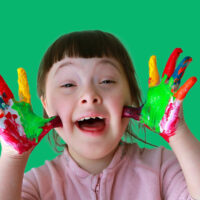Search results
-

ADHD – Attention-deficit / hyperactivity disorder
ADHD is a behavioural disorder with three key aspects, inattention, hyperactivity, and impulsivity.
Read more -

Attachment
The disposition of an infant or young child to identify and interact with the person or small set of persons considered most likely to provide them with care and protection is known as attachment.
Read more -

CAMHS – Child and Adolescent Mental Health Services
Child and Adolescent Mental Health Services (CAMHS) is a broad term for all services that work with children and young people who have difficulties with their emotional or behavioural wellbeing. As well as NHS CAMHS, local areas will have a range of other services available, based on local need and commissioning arrangements. These include services from local authorities, schools, charities, the private sector and community paediatrics.
Read more -

Bullying
Not long ago, bullying was viewed as a normal part of childhood’s formative experiences. Over the past 50 years, since the pioneering work of Dan Olweus (1970), bullying started to be recognized as a complex public health matter and a social problem. Solid evidence has accumulated about the impact of bullying victimization on children’s and adolescents’ (hereby youth) mental health and well-being.
Read more -

Depression
Depression is common in children and young people, particularly in adolescence and among girls. On average, an episode of depression lasts for about eight months and often occurs alongside non-depressive conditions such as ADHD.
Read more -

Digital Interventions
Many digital technologies are designed to be used in adjunct to established mental health treatments, not to replace them. Learn more with this Topic Guide.
Read more -

Eating Disorders
Eating disorders: an introduction to anorexia nervosa, bulimia nervosa and other eating disorders. From this topic guide, you can find the latest blogs, events, publications, videos and podcasts.
Read more -

Intellectual Disabilities
Many terms have been used to describe an intellectual disability (ID) or medical conditions linked to an ID. Some terms that were originally designed to describe levels of intellectual disability or specific medical conditions, have unfortunately become part of common derogatory language used within society and so have become insults.
Read more -

Detaching RAD from DSED: the rationale and research requirements
In order to view this content, you need to be an ACAMH member. Membership starts from just 11p a day. We hope you consider joining and being part of the advancement of child and adolescent mental health.Read moreCurrent members will need to be registered as a website user and log in, our guide to this simple process can be accessed here.
-

School-based interventions
Children and young people spend a great deal of time at school, so it has an important role to play in their development. Time spent in school impacts not just on academic and cognitive progress, but also on social interactions, peer relationships, emotional regulation and behaviour. All these areas affect, and are affected by, mental health (Fazel et al, 2014).
Read more